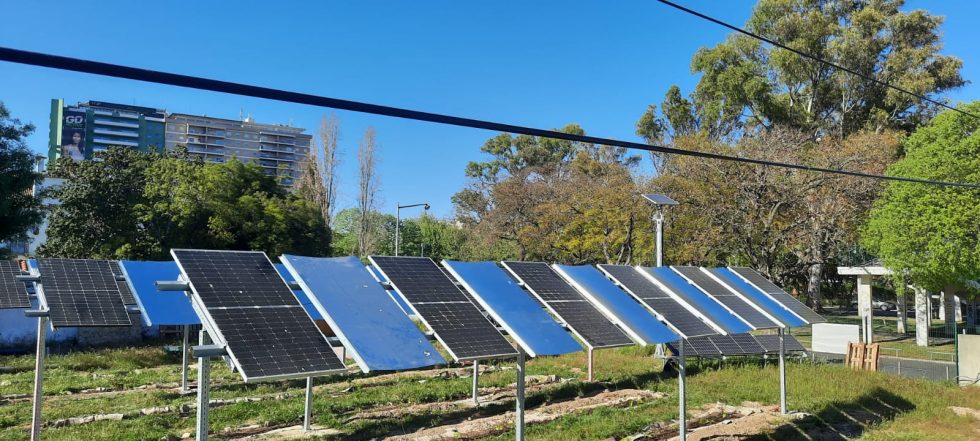Image4All is responsible for installing and managing the photovoltaic production unit of the new Horta Solar at FCUL. Project, with development of self-consumption, aims to explore the combined and synergistic production of solar electricity and agricultural products. “Agrovoltaic” is a versatile solution with no impact on biodiversity
Lisbon, May 17, 2023 – Image4All is responsible for the implementation and management of the photovoltaic production unit of the new Horta Solar of the Faculty of Sciences of the University of Lisbon (FCUL). The project developed by the engineering and energy efficiency company demonstrates the potential of the combined approach of photovoltaic generation and agricultural production – “agrovoltaic” – as a solution in a rural environment, but also in an urban environment.
The new "agrovoltaic" system is part of the living laboratory for Sustainability @Ciências and has Image4All as a partner, within the scope of the company's support for Research & Development in the scientific sector, in this case energy needs, whether for optimize the agricultural production cycle, both for generation and self-consumption.
The urban garden at Campus Solar is a multidisciplinary research and demonstration project of an “agrovoltaic” system to explore the combined and synergistic production of solar electricity and agricultural products. The new system is installed in the external solar energy laboratory on the FCUL campus, in Campo Grande, Lisbon and, in addition to being a new source of energy, it allows the development of scientific research in the agricultural sector.
From an energy point of view, the main motivation for this “agrovoltaic” project is to solve a dilemma: the installation of large photovoltaic plants is relatively cheap, but they require land that could be used for other purposes, such as agricultural production or simply landscape. Natural. They can also be almost equivalent to a monoculture, which if not done well also has an impact on biodiversity.
Between the two dilemmas, agrovoltaic appears as a solution, because it has no impact on biodiversity, does not occupy the land and therefore allows for other uses. Exploring the synergy between photovoltaics and agriculture, in terms of land profitability, is also interesting from an economic point of view.
At the limit, the potential for use is almost infinite. For example, to meet Portugal's targets for renewable energy production of 20 GW in 2050, it would be necessary to use 1,5% of Portugal's agricultural zone with “agrovoltaic” projects. There is plenty of space, you can choose the best sites, with better connections to the network, without environmental licensing problems.
The project also explores the implementation in cities, where it is more expensive, because the projects are smaller. This project is a partnership with FCUL vegetable garden and eventually the replication of this model will be in urban gardens in the city. It is a biodiversity experience in terms of the urban environment, assisted by specialists to help in understanding the process.
At an agricultural level, the installation is divided into four zones, with different conditions in terms of shade at different times of the year. There is also a subdivision in lines in which one has normal irrigation, another is in rainfed and the other has intelligent irrigation. The aim is to be able to assess water needs and understand differences in plant growth.
The solar electricity generated by this Production Unit for Self-Consumption (UPAC) is used to meet the consumption of other scientific experiments taking place in the laboratory, with injection into the grid of any excess generation. In the near future it will be integrated into a collective self-consumption system.
The UPAC developed by Image4All was installed on elevated structures and the modules were placed apart so that initially the shading caused by the row of modules was not total. Image4All also provided “dummies” panels (metal sheets) to occupy the spaces between modules and thus vary the sun exposure on the ground below.
“This project, in addition to being a response to the agricultural sector, has a research dimension to which Image4All contributes with the aim of boosting and developing the country's scientific sector”, says João Loureiro, CEO of Image4All. “Image4All's priority is optimize energy use to improve profitability and sustainability”, he summarizes.
In the area below the panels, FCUL placed test cultures (various plants) to verify how different levels of sun exposure affect the development and water needs of fauna and flora. In this context, the project integrates the installation of two types of modules, normal and bifacial, to understand if there is any variation in their performance due to the existence of crops or with the variation of sun exposure in the soil.
“The performance of the photovoltaic system with bifacial modules could benefit from the radiation reflected in the plants, which reflect radiation at a favorable wavelength for the photovoltaic conversion in the modules”, explains Professor Miguel Centeno Brito. “Photovoltaic generation could also benefit from possible reductions in dirt and dust and/or reduction in ambient temperature. As for agricultural production, and the concomitant need for irrigation, it may benefit from a more protected local environment, with some shading, especially at times of the year with greater thermal stress”, explains the person in charge of the project at FCUL.
“Energy optimization in its multiple aspects is structural for the future and Image4All works to enhance and develop it”, says the CEO of Image4All. “Over the years we have been innovating in the answers and expanding the range of solutions to add value to customers and projects in various sectors”, adds João Loureiro.


